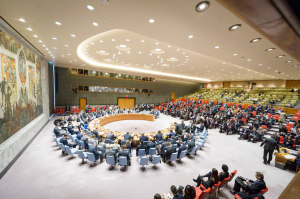De-Escalation Security Zones in Syria: Hold the Cheers. US Intent on Continued Support of the “Moderate” Terrorists

On Thursday, Russia, Turkey and Iran signed a memorandum in Astana, Kazakhstan on establishing four de-escalation zones in Syria – these countries acting as guarantors.
According to Tass, zones will be in
“Idlib province and some neighboring territories (Latakia, Hama and Aleppo) to the north of Homs, East Ghouta and some provinces in southern Syria (Daraa and Quneitra).”
Checkpoints will be set up on borders of zones for security, safe passage of civilians, and delivery of humanitarian aid.
“Points of monitoring the ceasefire will be also arranged there,” Tass explained.
Russia’s Presidential Envoy on the Syrian Settlement Alexander Lavrentyev said Moscow will do everything possible to assure no aerial or ground operations in these zones.
Syria’s Foreign Ministry made similar comments. Lavrentyek said Russian
“combat operations (in) this territory” will cease, but only if no efforts are taken…to destabilize the situation (in) the country’s other territories.”
Moscow is ready to send observers to monitor compliance and address violations. The agreement becomes effective on May 6.
Within 10 days of its signing, guarantor states will establish a joint working group, firming up precise de-escalation zones and borders. By late May, maps will be drawn up to show them.
Hostilities in “tentatively designated” de-escalation zones will stop for six months, longer if all parties agree.
Ceasefire observance depends entirely on opposition groups complying with the agreement – very doubtful based on past experience and the reaction of these groups in Astana, rejecting the plan, refusing to accept Iran as one of the guarantor countries.
Syria and Russia can be counted on to fully observe what’s proposed – not US-supported terrorists, the Trump administration, Turkey, Saudi Arabia, other Gulf states or Israel, making de-escalation shaky before beginning.
Discount a State Department statement, saying
“(t)he United States supports any effort that can genuinely de-escalate the violence in Syria, ensure unhindered humanitarian access, focus energies on the defeat of ISIS and other terrorists, and create the conditions for a credible political resolution of the conflict.”
False! Washington initiated conflict to destroy Syrian sovereignty, oust Assad and replace him with a pro-Western puppet. Its objective remains unchanged.
America supports ISIS and other terrorist groups. It obstructs humanitarian aid. It wants endless war, not resolution.
Expect continued US efforts to undermine Russia’s de-escalation plan the way it sabotaged five years of on-and-off peace talks.

Alexander Lavrentyev
State Department: We…encouraged the Syrian opposition to participate actively in the discussions despite the difficult conditions on the ground.”
Fact: The opposite is true. US obstruction since Geneva I in 2012 aimed to prevent conflict resolution.
State Department:
“We continue to have concerns about the Astana agreement, including the involvement of Iran as a so-called ‘guarantor.’ “
“Iran’s activities in Syria have only contributed to the violence, not stopped it, and Iran’s unquestioning support for the Assad regime has perpetuated the misery of ordinary Syrians.”
“In light of the failures of past agreements, we have reason to be cautious. We expect the regime to stop all attacks on civilians and opposition forces, something they have never done. We expect Russia to ensure regime compliance.”
Fact: Russia and Iran are committed for conflict resolution. Washington wants endless war and regime change.
State Department:
“We look forward to continuing our dialogue with the Russian Federation on efforts to that can responsibly end the Syria conflict. We continue to strongly support the UN-led process in Geneva…”
Fact: Washington and its rogue allies are part of the problem, not the solution.
Fact: Russia, Iran and Syria alone can be relied on for good faith efforts to end over six years of US-instigated aggression.
Stephen Lendman lives in Chicago. He can be reached at [email protected].
His new book as editor and contributor is titled “Flashpoint in Ukraine: How the US Drive for Hegemony Risks WW III.”
http://www.claritypress.com/LendmanIII.html
Visit his blog site at sjlendman.blogspot.com.

